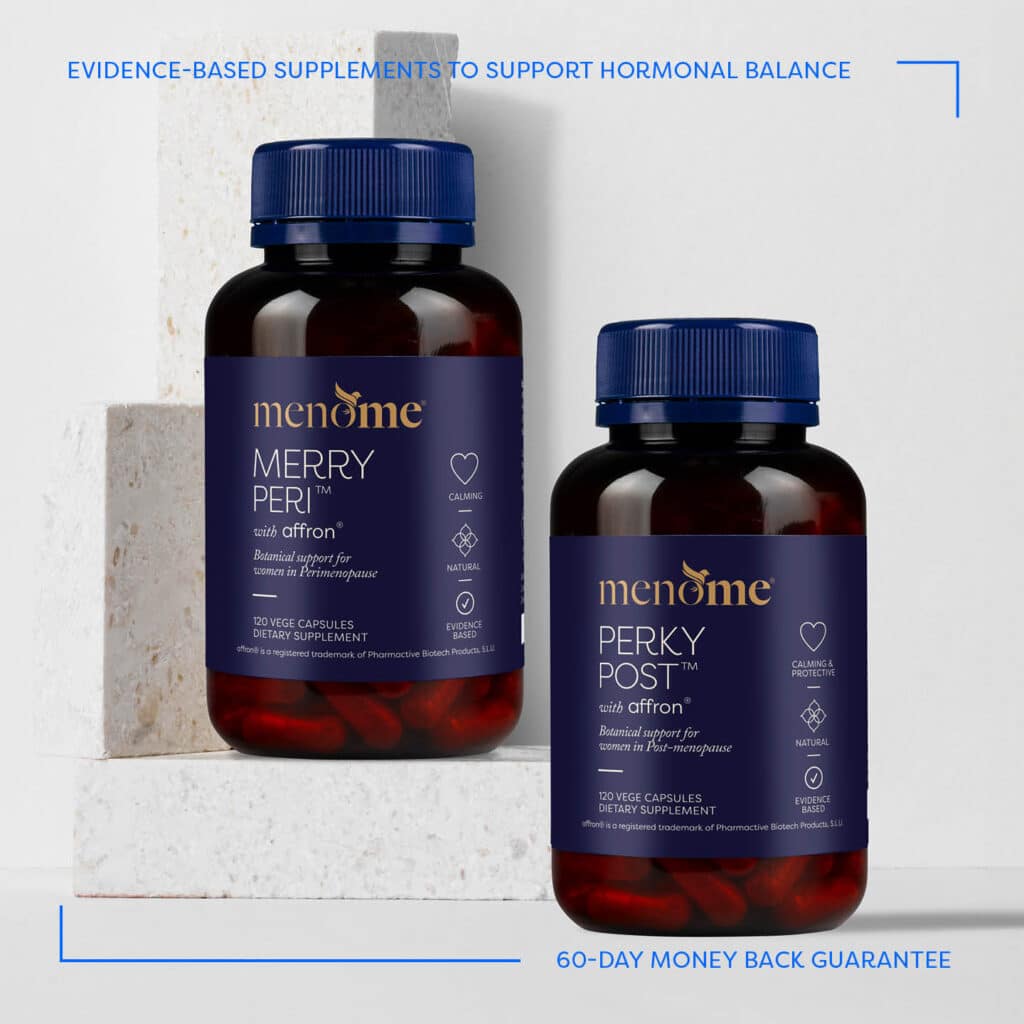Are you wondering where your sex drive has gone?
Has your libido left the building?
According to a study by the Journal of Women’s Health, this is completely normal during menopause. Especially if you struggle with body image, vaginal dryness, fatigue and night sweats. It’s not surprising that the thought of sexual discomfort doesn’t appeal.
In other cases, you notice orgasm is more difficult to achieve. And if your partner takes this personally it can douse the sexual flames.
All in all, it can be a complicated journey.
But take heart, there are ways you can enjoy sex during all of the stages of menopause.
Menopause & sex
There are several reasons libido can be impacted during perimenopause and post-menopause including:
Physical changes
- Hormones – depleted estrogen/progesterone/testosterone and increased cortisol
- Fatigue
- Joint/muscle pain
- Depression
- Hot flushes/night sweats
- Vaginal dryness
Psychosocial issues
- Financial stressors
- Work pressure
- Family issues – elderly parents/needy teens
- Body image
Relationship & situational issues
- Health – your partner may have health issues
- Male sexual dysfunction
- Does your partner still turn you on?
- If you’ve just had a fight it’s unlikely you’ll be in the mood
Men & sex

It’s long been recognised that for men, sex is an important physical release. By the same token, sex is more closely aligned with feeling valued for women.
Interestingly, during her research on shame and vulnerability, Brene Brown identified that sex is about more than intercourse for males too. In her book – Daring Greatly – she shared her findings that men link sexual rejection with masculine shame.
Women & sex
We hear from women struggling with a lack of sexual desire almost daily.
It’s a common issue.
In fact, The Global Study of Sexual Attitudes and Behaviours (GSSAB), which included 13,882 females aged 40 to 80 years, reported 26% to 48% of women had a lack of interest in sex. Moreover, 18% to 41% had difficulty reaching orgasm.
While some women happily say ‘sayonara’ to their sex lives, if you’re not one of those it can be troubling. The paradox is that for some people menopause actually increases sex drive.
Furthermore, for both males and females sexual desire is individual. Just like the menopause journey, there is no one size fits all.
Relationships & sex

When it comes to relationships, it’s important to understand the difference between spontaneous and responsive sexual desire.
Spontaneous sexual desire is when you’re mentally aroused first. This is often illustrated in movies when a couple will see each other and BAM! They simply have to make love there and then. On the other hand, responsive sexual desire builds i.e. you begin lovemaking and become aroused during foreplay.
But a good relationship is not just about sexual intercourse. Relationships should also include plenty of physical touch, communication and intimacy.
In fact, acts such as hugging and kissing release the ‘love hormone’ oxytocin. Oxytocin is known to reduce cortisol and anxiety as well as build love and trust. It may also lead to responsive sexual desire.
14 tips to improve sex drive
- Ensure you spend time together and say “I love you” often.
- Prioritise intimacy over sex itself. Snuggle, exercise, cook, dance, massage each other or take a bath together.
- Amp up the foreplay and make a point of lengthening it out.
- Put your adventurous hat on and try role-playing or incorporating sex toys.
- The more you can reduce your stress levels (cortisol) the more likely you are to experience sexual desire. Mindfulness is known to help.
- Keep your blood sugar in check – high blood sugar and diabetes can impact sex drive.
- Check your medications – some forms are known to decrease libido.
- Exercise – studies show it can affect positive self-image.
- Practise yoga. A 2009 study in The Journal Of Sexual Medicine showed that yoga improves sexual desire and orgasms aka yogasms.
- Strengthening and toning your pelvic floor muscles has been found to increase blood flow to the vagina and intensity of orgasms. What’s more, the neurochemicals released during orgasm can help you sleep better.
- Try taking sea buckthorn oil which contains omega 3,6, 7 and 9. Sea buckthorn is also antioxidant-rich and has been found to have a beneficial effect on vaginal health and lubrication.
- Lubricate, lubricate, lubricate – a lubricant free of perfumes and chemicals can oil the squeaky wheels (so to speak)!
- You could use kitchen pantry staples like ghee (clarified butter) or coconut oil (fractionated is less oily). Alternatively, purchase a lubricant in a tube such a Sylk or Bonk Lube.
- Take Merry Peri® or Perky Post®daily. The fenugreek in the formulations help to support libido. What’s more, vitamin D in Perky Post® helps vaginal health.
NB: If sexual intercourse is very painful for you this is known as dyspareunia. It’s a good idea to see a medical professional.










